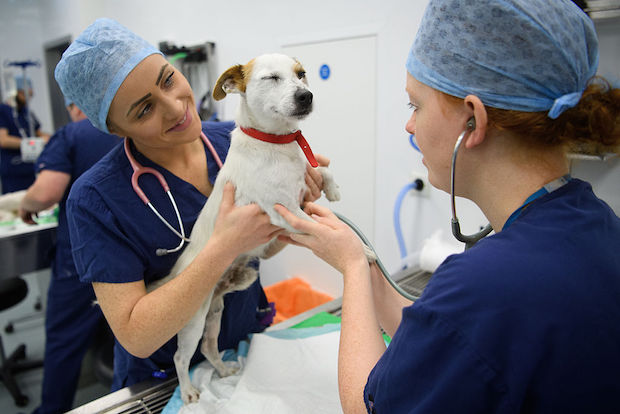We are famously a nation of animal lovers, so I suppose it’s not too surprising that one in two British households owning some form of pet. There are an estimated £20 million pets in the UK, so pet-related industries are not a bad area to be involved in. (This number, by the way, doesn’t include horses; there are around a million of those, too). And, as one of the nation’s pet-owners, I suppose I do my fair share of contributing to the pet industry.
But there’s one area in particular I’ve been thinking about recently: the area of pet insurance. I recently acquired a puppy, but the question was, should I insure her or not? I do also (for reasons which even I am not sure I entirely understand) own three horses – none of which are insured. Why not? Well, my theory in the past has always been that I’d rather set aside a certain amount of money per month into a ‘vet piggybank’ rather than give it to an insurance company. Of course, in reality this never happens, but as a theory it should work – and the bills do get paid!
But would I have been better off having my horses insured? Well with two out of the three, no; the insurance company would certainly have made a decent profit off of me. But horse number 3 has cost me in vet fees about the same amount as it would have cost to insure him for the four years I’ve owned him – around £1,000 a year.
I suppose the difficulty here is balancing the likelihood of your pet needing an expensive operation or developing an ongoing healthcare problem that will end up with you having to pay pricey vet bills year after year, and the fact that you could pay hundreds a year to your insurer and never use your insurance at all.
One factor worth bearing in mind is how the treatments available to our pets are changing and advancing. Just watch Channel 4’s The Supervet and you’ll get an idea of just some of the operations that are now performed on animals. Prosthetic limbs are feasible for dogs and cats, and technologies such as MRI scans and regenerative therapies are regularly used. But while these new developments are fantastic for our pets’ healthcare and improving their lifespans, they’re also quite pricey on your wallet. An MRI scan for a horse at an equine hospital, for example, will end up with a bill of around £1,000. If your pet ever needs surgery – whether that involves rebuilding a shattered leg, for example, or removing a swallowed rubber ball – it’ll certainly cost you hundreds of pounds, if not more.
So what’s the answer? The trouble is that there is no easy answer. You’re taking a gamble either way. I suppose when you look at the laws of probability, the average customer isn’t going to claim as much on their pet insurance as they pay for it; that’s how the insurance companies make their money.
Personally, I decided to bite the bullet and insure the dog, at the cost of a few hundred pounds a year. Many companies offer deals for pets from the same household though, and there are cheaper (and more expensive) options on the market. The thing is, I know if I have my phone stolen and it’s not insured, I can afford to buy a replacement – even if it’s a cheap one for the time being. If your pet needs an urgent operation and you can’t afford to pay for it, it’s a different matter. Yes, there are some charities out there who might be able to help out if push comes to shove, but for the sake of a few hundred pounds a year, I’d rather buy my peace of mind.







Comments